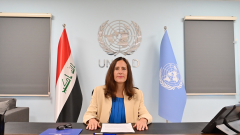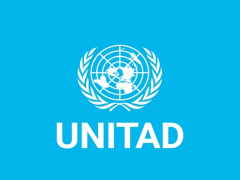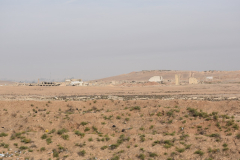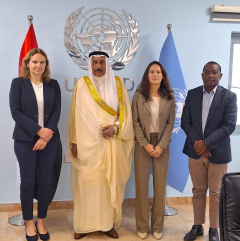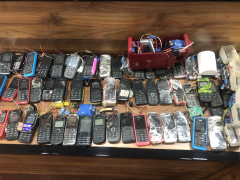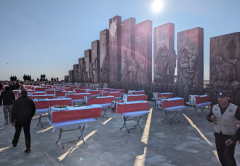Collect, Store, and Preserve Evidence to the Highest Possible Standards
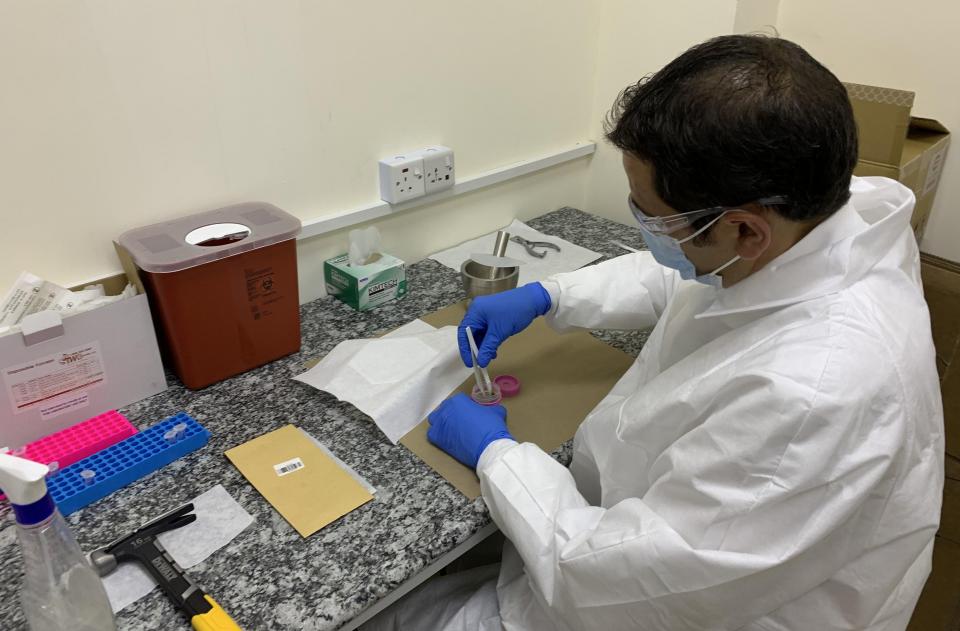
Collect, Store, and Preserve Evidence to the Highest Possible Standards
UNITAD’s investigations aim to hold ISIL senior members accountable for the crimes they have committed, on the basis of objective, evidence-based investigation and analysis, and through fair and independent criminal proceedings. To do so, the Investigative Team collects, preserves and stores evidence in relation to acts of ISIL that may amount to war crimes, crimes against humanity and genocide. This work is carried to the highest possible standards, to ensure the broadest possible use before national courts, and complementing investigations being carried out by the Iraqi authorities, or investigations carried out by authorities in third countries at their request.
Conducting its work in close cooperation with Iraqi authorities and in a manner fully aligned with the sovereignty of Iraq, UNITAD operates in an impartial, independent and credible manner, per UN Security Council resolution 2379 (2017) and the Terms of References.
In addition, building an international-standard evidence base for use in fair and transparent criminal proceedings, the collection of such evidentiary material by UNITAD may serve to undermine the ideological underpinnings of ISIL by establishing an incontrovertible source of material detailing the scope and nature of their crimes, thereby contributing to efforts to prevent its form of violent extremism from spreading further.
Collection
The Investigative Team works to collect evidence pertaining to acts that may amount to war crimes, crimes against humanity and genocide committed by ISIL in Iraq by conducting interviews, taking witness testimony, receiving information and documentation as well as acquiring forensic material. UNITAD engages closely with the Government of Iraq to assess the evidence and materials in its possession, based on their reliability and probative value, then helps to identify gaps in the evidence and take steps, where possible and appropriate, to fill such gaps. In line with its mandate, the Team is collecting documentary, forensic and testimonial evidentiary material.
Preservation and Storage
Evidence collected by the Team is systematically organized, catalogued, recorded, preserved and stored in Iraq, in accordance with international criminal law standards and taking into account Iraqi criminal and procedure laws. This ensures the evidence can have the broadest possible usability and admissibility in fair and independent criminal proceedings conducted by competent domestic courts in Iraq and other States, and in any other uses to be determined in agreement with the Government of Iraq, on a case-by-case basis.
Analysis
The Analysis Unit provides impartial, independent and reliable assessments of evidence collected, the probatory value of the evidence and information gaps it identifies. The analysts work directly in support of the various field investigation units in order to assess the evidence gathered. Consistent with the Terms of Reference, UNITAD analysts cooperate with relevant Iraqi and international counterparts whom are engaged in assessing the responsibility of ISIL individuals for crimes committed in Iraq.
These assessments are based primarily on evidence and are supplemented with information provided by Iraqi and international partners. The assessments the unit provides, serve to guide the use of the evidentiary material in courts. The information gap analysis supports evidence and information collection planning in order to drive UNITAD investigations, as well as complement investigations being carried out by Iraqi authorities and by authorities in third-party countries.
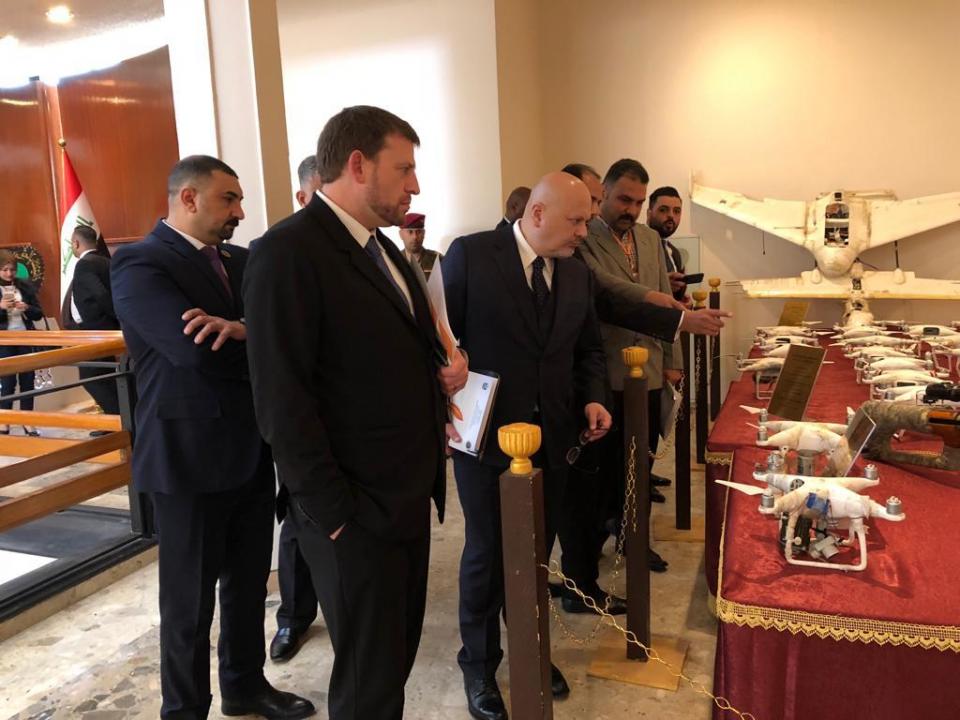
Standards and Procedural Requirements for the Collection, Preservation and Storage of Evidence
The Investigative Team has adopted procedures for collecting, preserving and storing evidence and materials that are in line with the highest possible standards, consistent with the UN Charter, UN policies and best practice, relevant international law, including international human rights law, notably the right to a fair trial and other due process provisions, as well as the relevant jurisprudence, in order to ensure the broadest possible usability and admissibility of such evidence and materials in courts.
In carrying out its functions, UNITAD acts with full respect for the Iraqi Constitution, Iraq’s relevant laws as well as Iraq’s right to exercise jurisdiction over crimes committed on its territory, including ongoing proceedings. The Team takes into account Iraqi criminal and procedure laws when it adopts such procedures, bearing in mind that the competent Iraqi authorities shall be the primary intended recipient of the evidence UNITAD collected, preserved and stored.
UNITAD seeks to obtain from witnesses and other sources their informed consent before it shares evidence with Iraqi and other domestic investigative, prosecutorial and judicial authorities, and with any other competent authorities as determined in agreement with the Government of Iraq. The consent, or lack thereof, is duly recorded by the Investigative Team. Appropriate measures are also taken to ensure respect for the privacy, interests and personal circumstances of victims, in light of their age, sex, sexual orientation, gender and health, and taking into account the nature of the crime, in particular where it involves sexual violence, gender violence or violence against children. In this regard, the procedures and methods of work adopted ensure that victims and witnesses, and any other persons who cooperate with UNITAD can do so in safety, full confidentiality and security.


